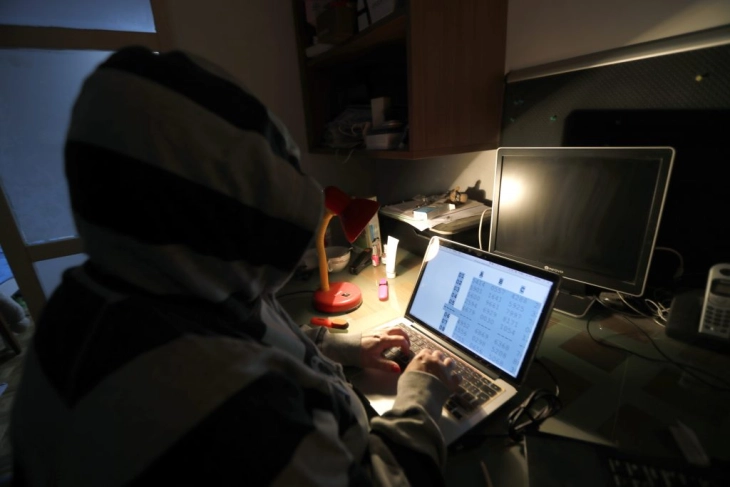Critical incident declared as cyberattack affects London hospitals
- Major hospitals in London have declared a critical incident after a cyber attack led to the cancellation of operations and the loss of blood transfusions.
- Post By Silvana Kocovska
- 09:15, 5 June, 2024

London, 5 June 2024 (PA Media/dpa/MIA) – Major hospitals in London have declared a critical incident after a cyber attack led to the cancellation of operations and the loss of blood transfusions.
Memos to National Health Service (NHS) staff at King’s College Hospital, Guy’s and St Thomas’ - including the Royal Brompton and the Evelina London Children’s Hospital - and primary care services in the capital say pathology partner Synnovis was hit by a “major IT incident.”
Synnovis is a provider of pathology services and was formed from a partnership between SynLab UK & Ireland, Guy’s and St Thomas’ NHS Foundation Trust and King’s College Hospital NHS Foundation Trust.
The memos said the “critical incident” has had a “major impact” on the delivery of services, with blood transfusions particularly affected.
Some procedures and operations have been cancelled or have been redirected to other NHS providers as hospital bosses continue to establish what work can be carried out safely.
NHS officials said they were working with the National Cyber Security Centre to understand the impact of the ransomware cyber attack.
And Synnovis said the incident is being reported to law enforcement and the Information Commissioner.
A spokesman for NHS England London region said: “On Monday June 3 Synnovis, a provider of lab services, was the victim of a ransomware cyber attack.
“This is having a significant impact on the delivery of services at Guy’s and St Thomas’, King’s College Hospital NHS Foundation Trusts and primary care services in south-east London, and we apologize for the inconvenience this is causing to patients and their families.
“Emergency care continues to be available, so patients should access services in the normal way by dialling 999 in an emergency and otherwise using 111, and patients should continue to attend appointments unless they are told otherwise.
“We will continue to provide updates for local patients and the public about the impact on services and how they can continue to get the care they need.
“We are working urgently to fully understand the impact of the incident with the support of the government’s National Cyber Security Centre and our cyber operations team.”
Synnovis chief executive Mark Dollar said that the attack has affected all of the company’s IT systems which has resulted in interruptions to “many of our pathology services.”
He added: “It is still early days and we are trying to understand exactly what has happened. A taskforce of IT experts from Synnovis and the NHS is working to fully assess the impact this has had, and to take the appropriate action needed.
“Regrettably, this is affecting patients, with some activity already cancelled or redirected to other providers as urgent work is prioritised.
“We are incredibly sorry for the inconvenience and upset this is causing to patients, service users and anyone else affected. We are doing our best to minimize the impact and will stay in touch with local NHS services to keep people up to date with developments.
“We take cyber security very seriously at Synnovis and have invested heavily in ensuring our IT arrangements are as safe as they possibly can be. This is a harsh reminder that this sort of attack can happen to anyone at any time and that, dispiritingly, the individuals behind it have no scruples about who their actions might affect.
“The incident is being reported to law enforcement and the Information Commissioner, and we are working with the National Cyber Security Centre and the Cyber Operations Team.”
One patient, Oliver Dowson, 70, was prepared for an operation from 6am on Monday June 3 at Royal Brompton when he was told by a surgeon at about 12:30 pm (1130 GMT) that it would not be going ahead.
He told the PA news agency: “The staff on the ward didn’t seem to know what had happened, just that many patients were being told to go home and wait for a new date.
“I’ve been given a date for next Tuesday and am crossing my fingers – it’s not the first time that they have cancelled, they did it on May 28 too, but that was probably staff shortages in half-term week.”
Vanessa Welham from Streatham, south-west London, said that her husband’s blood test at Gracefield Gardens health centre was cancelled on Monday evening and he was informed that local centres were not taking bookings for an “indefinite period of time.”
She told PA: “My husband received a text message last night advising his appointment this morning had been cancelled due to circumstances beyond their control, and that all major south London hospitals – King’s, St Thomas’, Guys, Evalina and Gracefield Gardens – are unable to take any bookings for an indefinite period of time.
“He went on to the Swift website and made a new appointment – the earliest available was June 17, but that’s probably questionable.”
A spokesman for King’s College Hospital in London confirmed it was affected by the attack.
All hospitals have been approached for comment.
According to the Health Service Journal (HSJ), several senior sources have told it the system has been the victim of a ransomware attack.
One said gaining access to pathology results could take “weeks, not days.”
There are suggestions that urgent and emergency care at the hospitals will be affected as they may not be able to access quick-turnaround blood test results.
In 2021, it was announced that SynLab would partner with the NHS to deliver pathology services at hospitals and GP services across south-east London.
As well as serving King’s and Guys’ and St Thomas’, the pathology service also caters for South London and Maudsley and Oxleas NHS Foundation Trusts and a number of GP practices, clinics and other community services across the boroughs of Bromley, Lambeth and Southwark.
Pathology services help with the diagnosis and treatment of illnesses and infections by analysing samples including blood and tissue.
Photo: EPA







